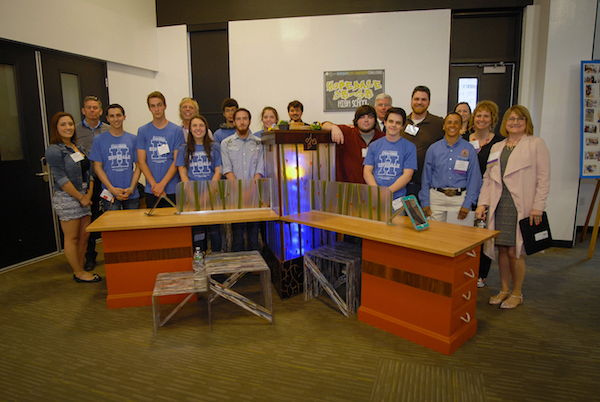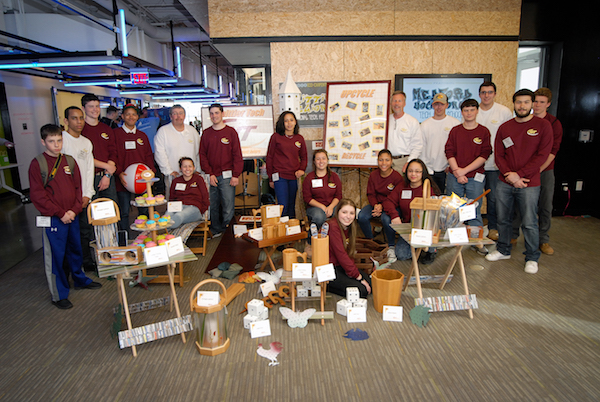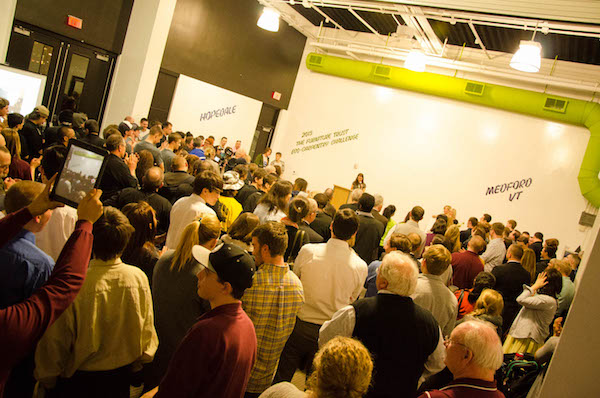
Get your FREE 30-day trial.
Please complete all fields.
It all started with what Christine Mosholder observed every day at her job of managing commercial renovation projects: Perfectly good furniture being thrown into dumpsters and landfills. She wondered what could be done differently; she thought there must be a sustainable, community-centric solution for this problem. Thus, Mosholder founded The Furniture Trust, a registered 501c3 nonprofit, in 2008 and brought others onboard to help execute her vision. Leveraging their Sustainable Network, the Furniture Trust connects donated office furnishings with local schools and nonprofits across New England.
Here’s how it works: When companies hire the Furniture Trust to coordinate their furniture removal efforts, they get competitive pricing for their projects and the security of knowing that experienced professionals take care of the entire project, with the added benefit that their furniture will get to the people who need it the most in a streamlined process. The company uses Salesforce to manage customers on both ends of their business: corporate givers and nonprofits. With every furnishing removal job, the company will match the items to the nonprofit wish list they maintain. Eventually, the Furniture Trust would like to use Salesforce to completely track all donations, projects, as well as what is saved in tonnage and monetary value. Tools such as a customer community would allow nonprofits to manage their own wish lists and track donations.
Recently, The Trust completed its annual signature event: The Eco-Carpentry Challenge. For the past 6 years, the event has provided an opportunity for Massachusetts students to recycle and repurpose used office furniture, creating new products while simultaneously developing carpentry skills. Students of all levels participate in the competition, which is open to public high schools, alternative schools, and technical schools. The benefits of the challenge are two-fold:
1. Educate students and teachers about the value of recycling, while providing a creative opportunity for students to demonstrate their carpentry skills transforming old furniture into new products;
2. It brings together the local community to showcase student upcycled projects and creativity while educating them on The Trust’s mission.
The rules of the challenge are simple: The Furniture Trust delivers a compilation of gently used furniture to each participating school. Each school gets a $100 gift card from Home Depot funded by The Trust to supplement their project; other than that, they can only use what they have in their shop or schools. Students, along with their shop teacher or designated supervisor, will transform the furniture into upcycled innovative products. The Furniture Trust also connects each school with an industry professional to mentor the school on design, presentation, and construction. That’s the extent of the rules — from there they’re given free reign to be creative.
At the end of the building stage, all projects are picked up by The Trust and brought to the Challenge’s event location where students will showcase their project and present to the local community. The event has a panel of judges that awards winners based on their meeting with each team, review of products and team oral presentations. Teams walk away with monetary prizes and awards.
Check out some of the great projects and participants from Award Night:



As you can see, this competition is no cakewalk.
“When first-time schools come into the competition, I think they’re sometimes shocked by how good the projects are and use this knowledge to help them in the next year,” says Furniture Trust’s Executive Director, Dana DeVeau.
In past years, students created a wide-range of products, including dining room tables, daycare furniture for their school, toddler beds shaped like dump trucks, and a princess castle to name a few.
It’s not the actual building and carpentry that the kids find the most difficult. “The presentation aspect has been an eye-opener for them. They get nervous, but they have such a sense of accomplishment afterwards. It’s very empowering to have adults come up to them wanting to talk about their creations.” says Giving Coordinator Margaret Carels.
Some projects even catch the eye of potential buyers. “One of the best parts of the competition is seeing the kids compete at a high level, test their creativity, ability to work together, and have professionals admire their hard work,” DeVeau says. “It also enables them to meet industry professionals who can help to assist them in future careers. The Challenge is a community event bring together all parts of what we do.”